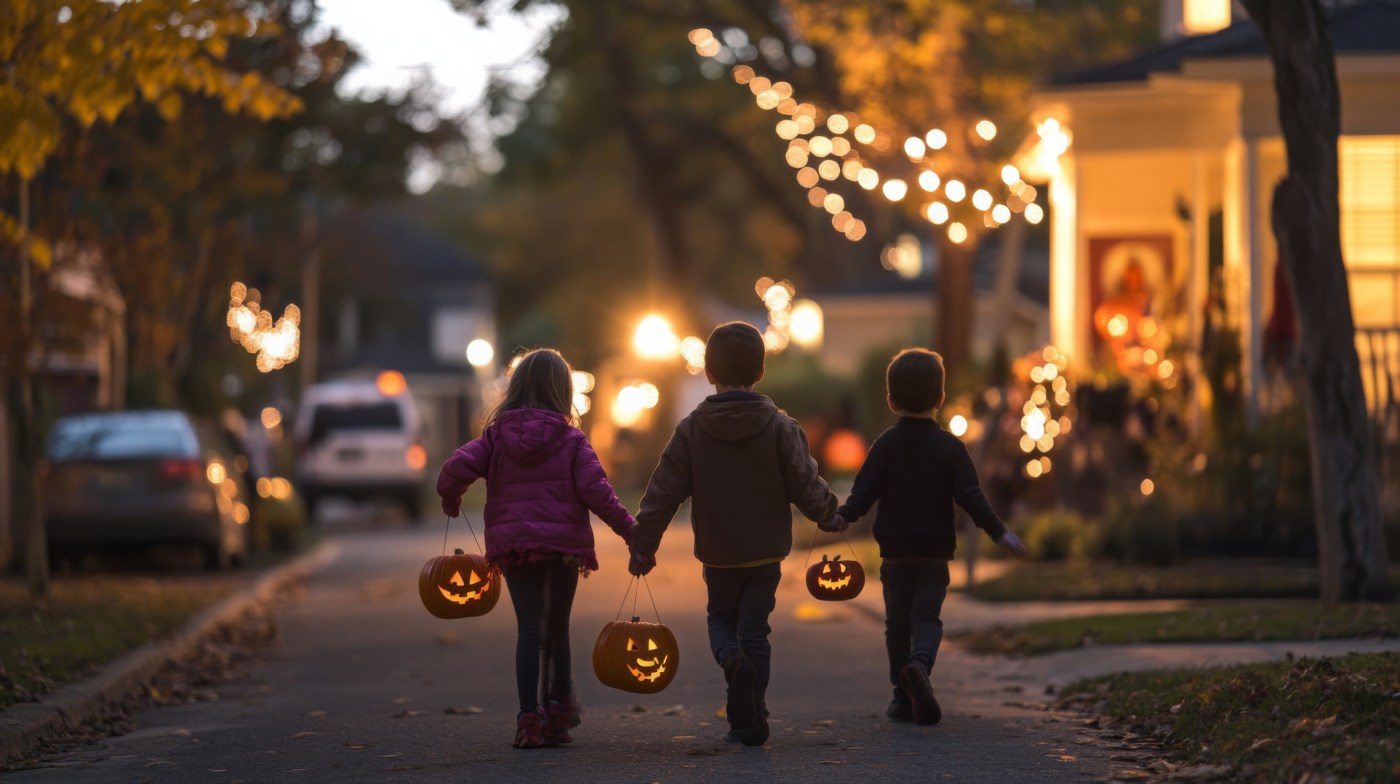
How to keep children safe this Halloween
Spooky season is in full swing with costumes and festivities galore! Halloween can be an exciting and creative time of year where children can be whoever they want to be. Whether they’re dressed up as scary monsters, a blushing princess or anything in between, it’s important to make sure safety is a top priority.
Some extra precautions can help make sure the costumed fun is also safe.
While Halloween can be a wonderfully festive time of year for children, families, and communities, it’s also a time when children may be excited and walking outside in twilight or after dark. Traffic, tripping hazards and hard-to-spot costumes can become hazardous if precautions aren’t taken.
The American Academy of Pediatrics has a few tips for families looking to enjoy the holiday with children.
Pick a visible costume
Dark colored costumes may fit the theme, but they can make it difficult for drivers to spot small children crossing the road. Choosing a costume with bright, fun colors can make it easier for drivers to see children when they are trick or treating. A brightly colored treat bag or glow-in-the-dark elements can be a fun way to incorporate safety into a scary costume.
Go trick-or-treating before dark
Young children thrive on routine, and it is easy for Halloween festivities to throw those routines offtrack. If your schedule permits, try trick-or-treating while it’s still light outside so you can stick to your child’s regular bedtime. It’s also safer to trick-or-treat while it’s still light out. If your child is sleeping, try putting a “please knock” sign on your door for other trick-or-treaters so a doorbell ring doesn’t disturb their sleep.
Cross the street as a group in established crosswalks
Most (62%) child pedestrian traffic fatalities occurred mid-block, rather than at intersections, according to the AAP. Make sure kids know not to cross the street between parked cars or out of driveways or alleys.
Be picky on costume material/design
Make sure that shoes fit well, and that costumes are short enough to prevent tripping, getting caught on objects or coming into contact with firepits or lit pumpkins. Look for “flame resistant” on the costume labels. Wigs and accessories should also clearly indicate this. Hats should fit properly to prevent them from sliding over eyes and blocking vision. Avoid face masks as they can obstruct vision, and sharp accessories like wands or swords.
Set expectations for older kids
Make sure you go over plans and routes with older children who trick or treat in groups. Designate a time the child should be home and make sure they carry flashlights with them. Teach your children to only approach homes with porch lights on and remain on the sidewalk for safety.
Be aware of food allergies
If your child or another tagging along has a food allergy, make sure to thoroughly check their candy once home for any possible allergens. Don’t allow them to have candy while out trick or treating. Even candies without allergen-causing ingredients could have come in contact with an allergen during manufacturing. For extra precaution, make sure to have an epinephrine auto-injector on hand and a fully charged cellphone to call for help if needed.
Be mindful of choking hazards
Whether it be a fun-sized candy bar or a small decoration on a costume, choking hazards could be within a child’s reach on Halloween. Babies and toddlers should not be eating hard candies or other small food items like popcorn or pumpkin seeds. Small toys that may be given out instead of candy can also pose a risk so be sure to separate them from edible options once home.
Don’t hesitate to call the pediatrician with questions on keeping children safe this Halloween.
Dr. Deanna Behrens is a pediatric critical care specialist at Advocate Children’s Hospital. She is an official AAP spokesperson, the former editor of the AAP Council on Immigrant Child and Family Health, a Health Policy Scholar through the Academic Pediatric Association, and is the chair of the Firearm Violence Prevention Committee for the Illinois Chapter of the AAP./Tribune News Service
If your child or another tagging along has a food allergy, make sure to thoroughly check their candy once home for any possible allergens. (Metro Creative Services)


